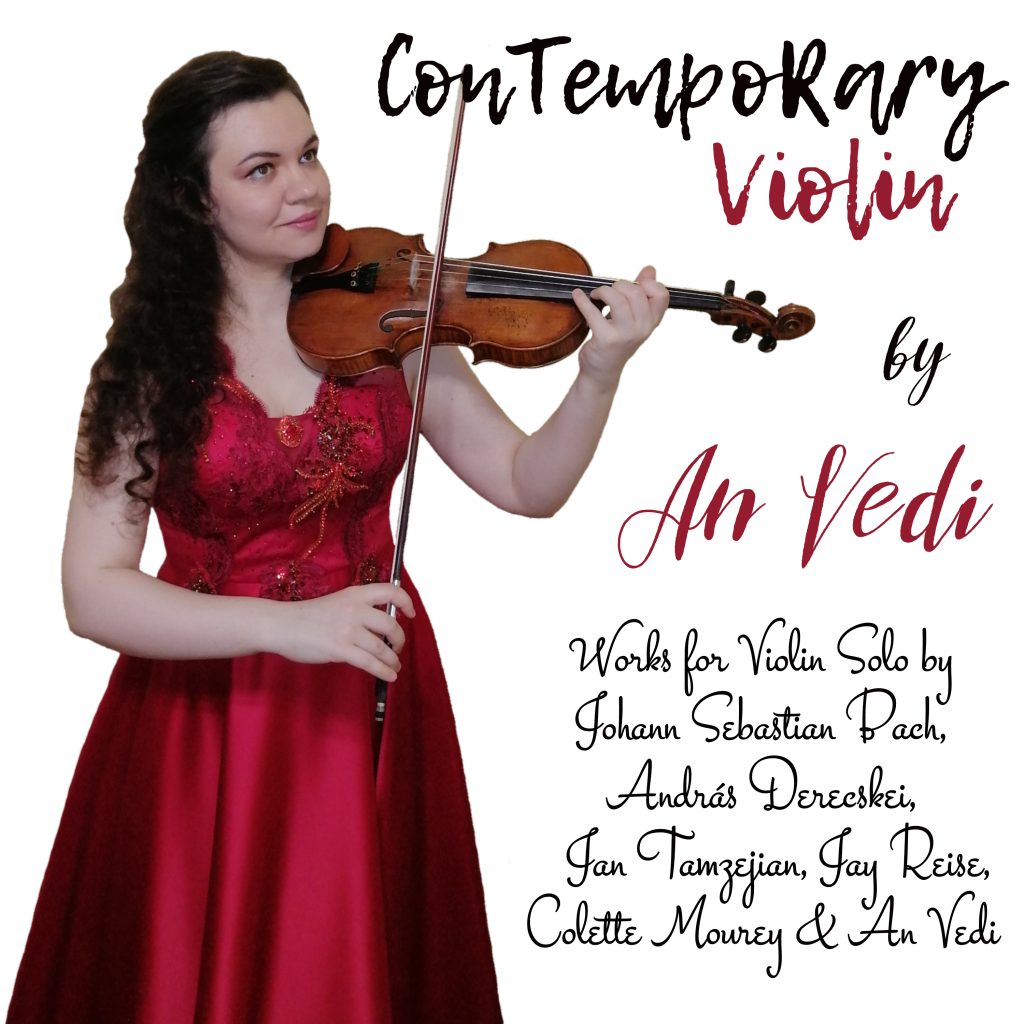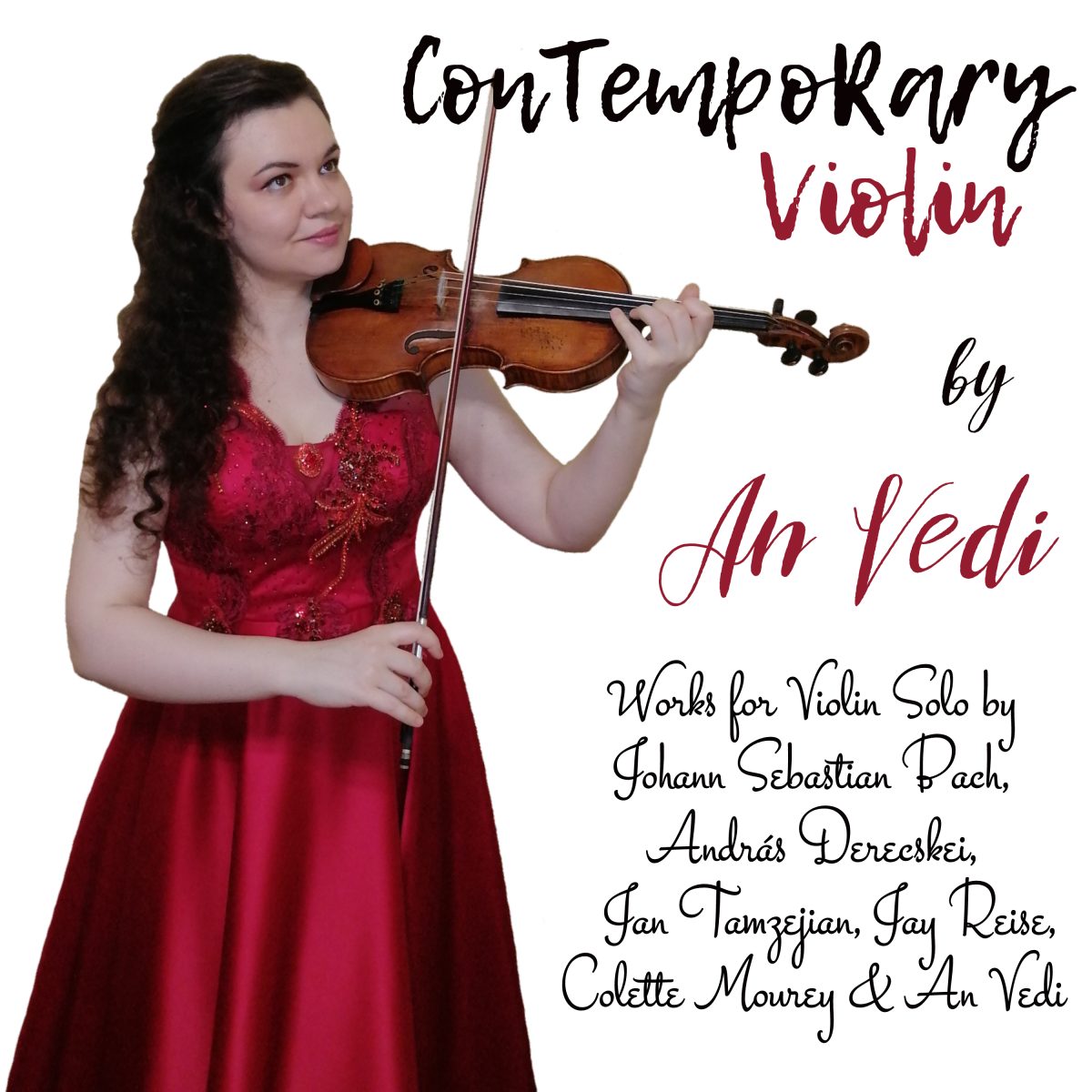Words By Joey Rochert.
Hello, An, Let’s talk about your new album, ‘ConTempoRary Violin’, where did you find the inspiration?
You know, inspiration is a very “dangerous” phenomenon. An artist may have an inspiration, but it is never endless. I have been used to working hard since childhood. And the violin is the instrument that itself gives inspiration to those who love music. In his youth, a violinist must practice every day for many hours, regardless of the weather, mood and surrounding events.
I made many concert programs of music for solo violin, I experimented a lot in this field. I have more than 200 works for violin solo in my repertoire, including pieces written by different composers especially for me and my own music. But I wanted to make this album special and not like what prevails in the music industry in this genre. It took me a long time to choose the right music for this album.
A few months before the recording of this album, I released several songs in different genres as a singer-songwriter. I also worked on several new concert programs for the Philharmonic as a solo violinist. Finally, I chose one of the most difficult works by Johann Sebastian Bach for solo violin – Partita No 2, consisting of 8 movements. This, perhaps, could be called “the first side of the reel.” For the “second side of the reel” I chose works that were written in the 21st century: the mystical “Starless Nocturne” by Jay Reise, the delightful oriental “Heyran” by Jan Tamzejian, a real musical “mini-series” about Space “The Birth of the Universe” by Colette Mourey and the mysterious Sonata No 2 by András Derezckei, movements of which are called “Amorf” and “Nervus”. I also remembered that I wrote one piece in 2019 in one night. I made a new version of this Fantasy “Cranes” and this work completed the album “ConTempoRary Violin”.
I decided to take this project entirely into my hands, so I was fully engaged in recording, sound engineering and production of the album. The album came out in August, and my two music videos for tracks from the album “Starless Nocturne” and “Heyran” came out in September. These music videos have already received official selections and nominations at several international film festivals and music awards.
Which composers in the current industry inspire you the most?
I am inspired by those composers with whom I am well acquainted. My teacher, composer, and professor at the Conservatory Alexander Koblyakov is a very important person in my musical life. I was a student in his composition class and in a few years I found my own “language” of instrumental music, and later I transferred this knowledge and experience to songwriting.
I am very glad that my friends-composers whose music I performed at the Philharmonic this year became Grammy® winners and nominees. Danaë Xanthe Vlasse, Nadeem Majdalany, Tom Nazziola, as well as John Finbury (Latin Grammy® 2020) and other composers that I know – all of them are a true inspiration for me.
Recently, I joined the project of an amazing composer with a difficult fate – Mehdi Rajabian. Just google his name and you will understand that this is a true warrior of art who lives for music. Of course, his life story might inspire anyone.

What is the best thing about being a composer in 2022?
I’m not sure if this is the “best”, but, as in past centuries, being a composer is not enough today. Now we have a lot of tools for creating digital content, including music, and, theoretically, every person who has downloaded DAW can call himself a composer. But let’s remember how the composers of the past lived. It seems they never slept or ate. Bach, Handel, Mozart and other composers of classical music created hundreds of works during their lifetime. Tons of music paper, ink. Years of rehearsals. Decades of live performances. And they had to go somewhere every day so that people could hear them. And no sound recordings. Of course, we do not know how the fate of digital content carriers will turn out in 100-200 years, but in the present and foreseeable future, every composer can be sure that almost every person on our planet can hear everything that he has composed and recorded.
Is there a certain place you often go to write? E.g a certain room, or environment?
It may be like the story of the violin. Sometimes I “need” to compose, at least a little. And here the environment plays little role. But, objectively speaking, I visited many countries and cities for my musical affairs, I was in many palaces, museums, and exhibitions. I have many memories of beautiful places on our planet and this inspires me.
Sometimes it inspires me that I just see a piano or a guitar and I urgently need to play one of these instruments and write something down in a notebook.
But there were also some rather strange cases. Once I was at a jazz big band concert in a large concert hall with several thousand seats. And I suddenly had a desire to write down one song and even an arrangement for it. And it was not a jazz song, but something like an anthem or a chant. Since I was sitting on the balcony and there was almost no audience next to me, I wrote down the music and lyrics on a sheet of music paper, while the well-known jazz melodies of the 20th century sounded on the stage.
What is your first memory of music?
When I was 2 or 3 years old, my parents (they are not musicians, but they love music) bought cassettes with popular classical music. Most of all, I remember fragments from Symphony No. 40 by Wolfgang Amadeus Mozart and the ballet “Swan Lake” by Pyotr Ilyich Tchaikovsky, which were performed by some famous orchestras and recorded on these cassettes.
My later musical impressions, around the age of 7 or 8 – I first heard the music by “Queen”. Apparently, that’s why I work in many musical genres as a violinist, composer, singer-songwriter and a conductor too.
Photo Credit: An Vedi.
